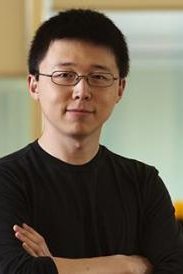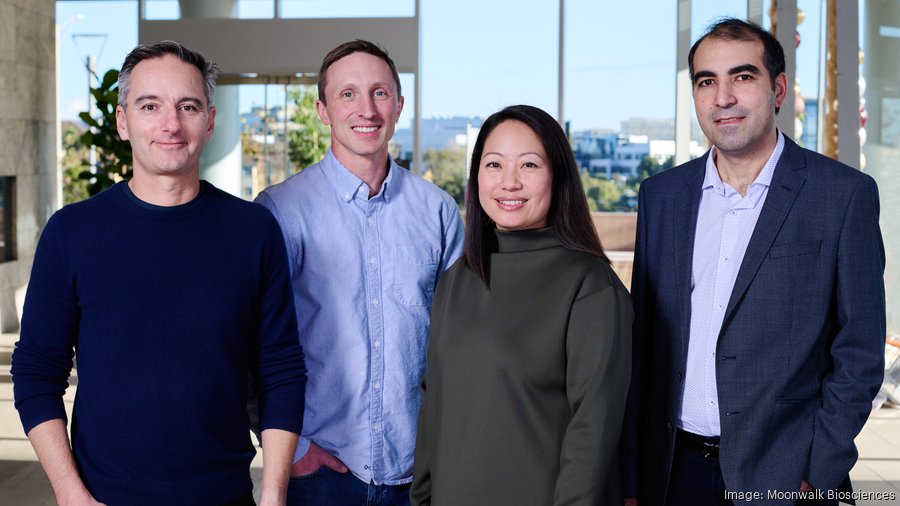Listen to this article 2 min
As researchers over the past few years mapped epigenetic marks — modifications to DNA that can be passed cell to cell — it became clear to Alex Aravanis and others that those changes could be codes for a new class of drugs.
Now Aravanis and other members of the team behind Moonwalk Biosciences Inc. — with connections to life sciences research tools maker Illumina Inc. and early cancer detection company Grail Inc. — have raised a reported $57 million seed and Series A round to reprogram those codes to flip cells back to a durable, healthy-functioning state.
The scientific co-founder of the South San Francisco-based company is Feng Zhang, a pioneer of the genome-editing CRISPR technology and a core member of the Broad Institute of the Massachusetts Institute of Technology and Harvard University.
But while CRISPR relies on cuts to DNA to insert corrected genetic codes or turn genes off, for example, Moonwalk is focused on epigenetic changes predicted by DNA methylation. Those chemical modifications are caused by behaviors and environment and aren't part of DNA — our genetic instructions — but they can be retained by cells as they divide.

The epigenome, Moonwalk CEO Aravanis said, controls which genes are expressed and which proteins are made. "It's like the software that really runs the genome," Aravanis said.
It's a long-term play: Aravanis said Moonwalk likely wouldn't file an investigational new drug application with the Food and Drug Administration for another two to three years. But using DNA methylation to turn genes off or on holds promise.
Changing methylation, Aravanis said, means flipping a "monster control switch" at the source of diseases ranging from cancers to diabetes. For example, tumor-suppressor genes could be reactivated, he said, and bad copies of genes could be suppressed. In some diseases, for example, getting a gene to express just a little more of a certain protein can change the course of disease.
"There are hundreds of diseases with one or more good copies (of genes) but are being suppressed epigenetically," Aravanis said.
As envisioned by its leaders and backers, Moonwalk hopes to be kinder, gentler than CRISPR, whose cuts carry the risk of damaging DNA. Recoded methylation patterns, Aravanis said, also could endure, potentially for years.
That kind of talk has gotten the attention of investors.
Moonwalk's seed and Series A cash came from ARCH Venture Partners, GV, Khosla Ventures, Alpha Wave Ventures, Steve Jurvetson's Future Ventures, and former Genentech and Guardant Health executive Gary Yeung's YK Bioventures.
The company said in a press release that it has raised $57 million but a late December filing with the Securities and Exchange Commission listed $49.6 million, including more than $6.5 million in cancelled convertible debt. A company spokesperson said the document was not accurate and was being refiled.
Little over a year old, Moonwalk has 10 employees, mainly in South San Francisco, but Aravanis is based in San Diego and other parts of the team also are in Southern California. The company expects to have closer to 40 people, particularly with machine learning and artificial intelligence engineers, going into 2025.
Moonwalk's leaders' ties to Illumina and Grail, the Menlo Park company Illumina created, acquired in 2020 and has been ordered by regulators to divest, are deep.
Aravanis is the former chief technology officer and head of research and product development at Illumina and a co-founder of Grail and Chief Technology Officer and co-founder Arash Jamshidi was senior vice president of data sciences at Grail and associate director of research at Illumina.
Elaine Cheung, Moonwalk's chief business officer, was head of business development at Grail and involved with business and corporate development and strategic partnerships at Illumina, and Sam Gross, the head of bioinformatics and machine learning/artificial intelligence at Moonwalk, was senior principal scientist in bioinformatics and data science at Grail.
Another Moonwalk founder and its COO, Justin Valley, most recently worked at Berkeley Lights Inc.
But while Grail has looked at how changes in DNA methylation can inform diagnostics, such as the ability of its tests to detect cancer early, Moonwalk is focused on therapeutics, Aravanis said.
"We're really rooted in rigorous biology," Aravanis said. "To us, it's about function."





